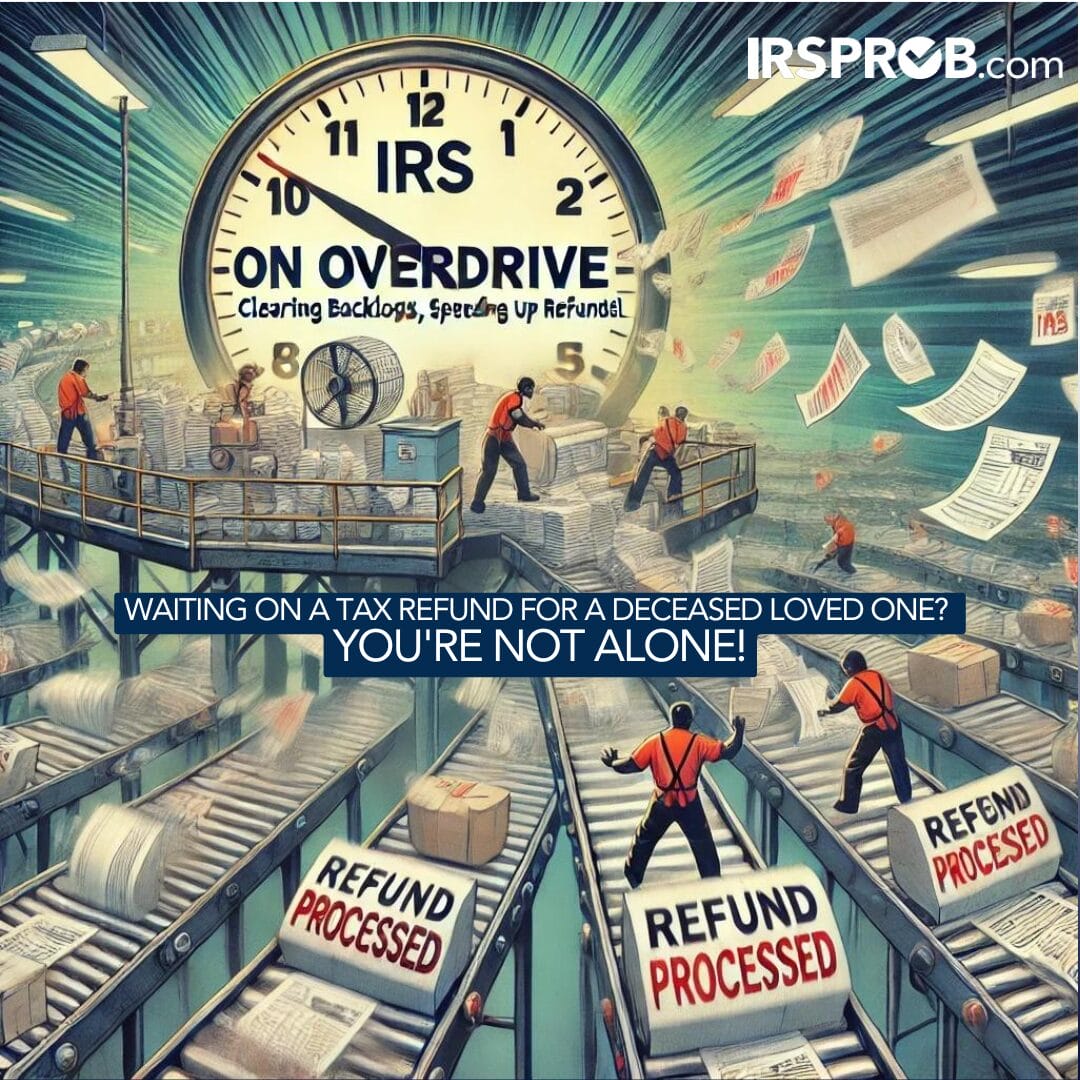As a business owner, dealing with taxes can be complex, but what happens when you are responsible for handling the tax affairs of a deceased loved one? If you’ve recently filed a final income tax return on behalf of a deceased taxpayer, you might be experiencing delays in receiving the expected refund. This is not an isolated issue but a significant concern many are facing. Let’s delve into why these delays are happening and what steps are being taken to resolve them.

The Issue at Hand
The IRS has acknowledged a significant delay in processing refunds for final income tax returns filed on behalf of deceased taxpayers, specifically those attached with Form 1310, Statement of Person Claiming Refund Due a Deceased Taxpayer. The Taxpayer Advocate Service (TAS) reported a notable increase in assistance requests related to these delays, primarily for tax years 2022 and 2023. This backlog has caused considerable distress for many who are simply trying to settle the financial affairs of their loved ones.
Understanding Form 1310
Form 1310 is essential for claiming a refund on behalf of a deceased taxpayer. When a taxpayer passes away, the responsibility of filing the final income tax return falls to their personal representative or surviving spouse. If there’s a refund due, Form 1310 must be attached to notify the IRS that the taxpayer is deceased and to direct the refund to the appropriate beneficiary. However, if the surviving spouse files a joint return, this form may not be necessary unless they are requesting a reissue of a refund check originally issued in the deceased’s name.
The Cause of the Delay
The delay primarily stems from the IRS’s handling of paper Form 1310 submissions. Upon receiving the form, the IRS separates it from the tax return for different processing streams. However, not all forms are supported by the IRS’s Modernized e-File platform, leading to a backlog of paper forms. This backlog, particularly from 2022 and 2023, has significantly slowed the processing of associated tax returns and the issuance of refunds.
IRS Response and Solutions
Recognizing the problem, the IRS has taken steps to reduce the backlog and prevent future delays. These include:
- Programming Updates: The IRS has requested updates to its systems to allow automatic issuance of refunds once Form 1310 is processed.
- Centralization of Transcript Inventory: By centralizing this system, the IRS can more effectively locate and prioritize older cases that need attention.
- Improved Employee Training: Enhanced instructions and training for IRS employees have been implemented to ensure proper processing of decedent returns.
- Manual Review Enhancements: The IRS has introduced programming designed to detect inconsistencies in return coding, ensuring these cases are reviewed and corrected manually rather than causing further delays.
Looking Ahead
As of early August 2024, the IRS has processed over 70% of the backlog, with about 1,100 returns still pending. The improvements being implemented are expected to prevent such issues in the future, though full resolution may take time.
Conclusion
Dealing with the death of a loved one is challenging, and the added burden of delayed tax refunds can be frustrating. However, the IRS is actively working to resolve these delays and improve its processes. As a business owner, understanding these delays can help you navigate the complexities of filing final tax returns for deceased individuals. Keep an eye on the IRS’s progress and be proactive in following up on any pending refunds.
If you need assistance with this or any other tax-related issue, our team at IRSProb.com is here to help guide you through the process. Contact us today to ensure you’re on the right track.







